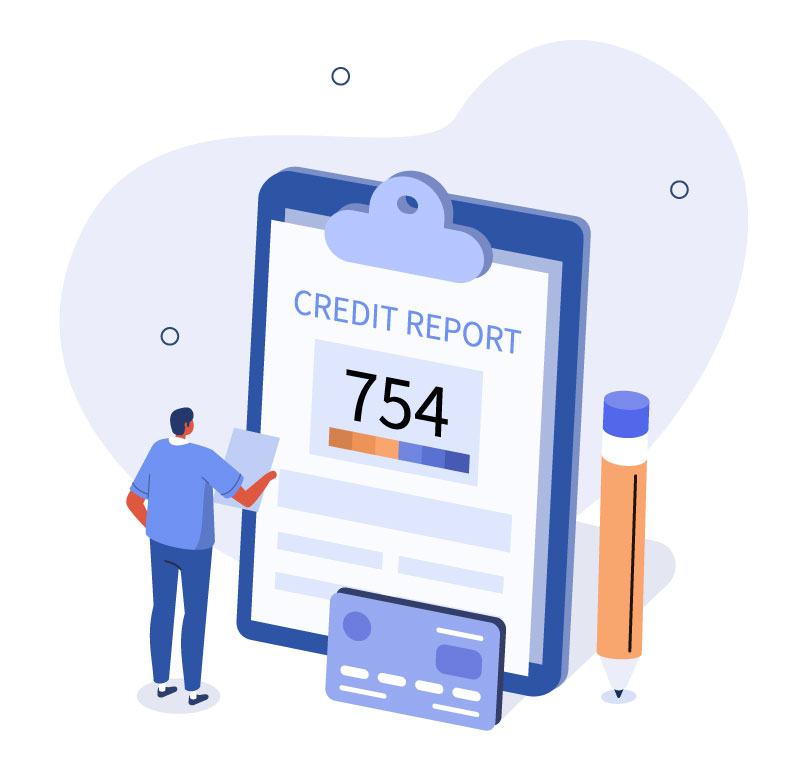Essential Guide: Your credit report and your mortgage
Posted 08/02/2023 10:52If you are looking to take out a new mortgage then getting an up-to-date copy of your credit report is a must.

Is it important that i get a copy of my credit report before taking out a mortgage?
Yes, it's important to get a copy of your credit report before taking out a mortgage. Your credit report is a detailed record of your credit history and is used by lenders to assess your creditworthiness. If there are errors or inaccuracies in your credit report, they could negatively impact your ability to get a mortgage or get a favourable interest rate. By obtaining a copy of your credit report in advance, you'll have the opportunity to review it for accuracy and make any necessary corrections before applying for a mortgage.
- We recommend you get a copy of your credit report from www.checkmyfile.com as it gives you the information from the main 3 credit referencing agencies; Equifax, Experian & Trans Union.
Why is my credit report important when considering taking out a mortgage?
Your credit report is an important factor in determining whether you will be approved for a mortgage and, if so, at what interest rate. Your credit report provides lenders with a comprehensive record of your credit history, including your payment history, outstanding debt, and other relevant information.
Lenders use this information to assess your creditworthiness and determine the level of risk you pose as a borrower. A higher credit score typically indicates a lower risk, which may result in more favourable loan terms, such as a lower interest rate or a larger loan amount.
A low credit score, on the other hand, can indicate a higher level of risk, which could result in a higher interest rate, a smaller loan amount, or even denial of the loan application.
By reviewing your credit report before applying for a mortgage, you'll have the opportunity to correct any inaccuracies, pay down outstanding debt, and take other steps to improve your credit score, which can help you secure a more favourable loan.
What sort of information does my credit report give me?
Your credit report contains information about your credit history and current financial situation. It typically includes the following information:
- Personal Information: Your name, current and previous addresses, social security number, and date of birth.
- Credit Accounts: A list of your current and past credit accounts, including credit cards, loans, and mortgages. This information includes the type of account, the credit limit or loan amount, the payment history, and the current status of the account (open, closed, in collections, etc.).
- Payment History: A record of your past payment behaviour, including on-time payments, late payments, and any missed payments.
- Public Records: Information about bankruptcies, foreclosures, tax liens, and other legal actions that can have a significant impact on your credit score.
- Enquiries: A list of entities that have requested access to your credit report, including lenders, credit card issuers, and landlords.
This information is used by lenders to assess your creditworthiness and determine the level of risk you pose as a borrower. Your credit report is an important tool for managing your financial health, so it's important to review it regularly to ensure that the information is accurate and up-to-date.
